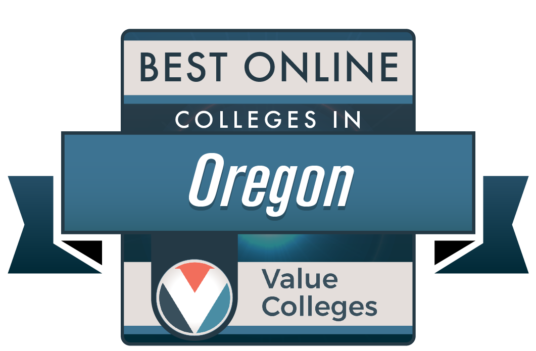B.S./B.A./B.A.S. in Cybersecurity

A Flexible Online Degree to Protect Data and Networks
CISSP Certification Preparation
Minimal Math Requirement
B.A., B.S., or B.A.S. Degree Paths
Learn More Today
Complete the form to learn more about this program.
- Duration 4 years
- Cost per Credit $329
- Credit Hours 180
Program Benefits
- Network through computer science and math clubs
- Small classes; daily interaction with seasoned faculty
- Expert career advice to aid your job search
- Industry certification for high salaried roles

Prepare for IT Security Careers with Specialized Knowledge
Protect data and networks with Eastern Oregon University’s Bachelor of Science, Bachelor of Arts, or Bachelor of Applied Science in Cybersecurity degree. Use electives to define the degree you earn. Earn your B.A. by selecting credits in a foreign language, or your B.S. with science credits. Select the Applied Science (B.A.S.) path if you already hold an Associate of Applied Science from a community college.
In this practical, hands-on program, you’ll gain foundational technical cybersecurity skills needed for success in both a Windows and Linux environment.
Under the direction of expert faculty currently working in the field to combat cyber threats, you’ll design an interactive prototype, and study operational cybersecurity, malware analysis, application security, incident response and Sys forensics.
This convenient online cybersecurity degree offers computer science knowledge in data structures, C++ programming, networking and architecture to prepare you to become a well-prepared IT professional with specialized skills for preventing threats in various security roles.
What Does Learning in a Practical Cyber Curriculum Mean?
60 Courses
180 Credits
Cybersecurity courses in our online bachelor’s of cybersecurity program focus more on scripting and variable solutions versus algorithm development, so you’re ready to solve the daily challenges you’ll encounter in a security’s role. This also means there’s minimal math coursework required.
Course Topics Include:
- Threat Analysis
- Malware Analysis
- Radiofrequency Analysis
- Information Security Management
Have Credits to Transfer?
The option to transfer credits makes your program more affordable and can help you get on the job sooner. We allow up to 135 credits from previous college coursework to be transferred into EOU. All EOU majors require a minimum of 20 EOU credits.
To see how your credits will transfer, use our Transfer Equivalency tool.
Earn Salary Premiums as a Cybersecurity Professional
As companies focus on including more roles dedicated to cybersecurity in a proactive approach in strategy, skills like threat intelligence, risk management, data privacy and more are sky-rocketing in demand — anywhere from 32%-164%. Cyber professionals find they can earn salary premiums from $5,256-$15,025 over their traditional IT counterparts.1
View Career OutlookOnline Bachelor’s of Cybersecurity Admissions Requirements
EOU is dedicated to offering an affordable education that gets you into your career of choice sooner. We offer an Applied Science (A.S.) path for students with an associate degree and also accept up to 135 college credits. You could also gain credit for life and work experience. There is no cost to you to have your previous credits reviewed, making it easy to get started now.
Get Started| Online Application Form and Fee: | Apply Now |
| Degree and Minimum GPA: | 2.75 high school GPA 2.25 college GPA For students transferring more than 30 quarter college credits, a 2.25 college GPA is required. For students with an AAOT and ASOT, a 2.0 college GPA is required. |
| Transcripts: | Provide official transcripts from all accredited educational institutions attended. |
| Additional Requirements: | GED scores if applicable |
Tuition Details
$329/Credit Hour*
180 Credits
Our team is committed to providing an affordable education and are here to support you in learning about options to pay for tuition.
About 92 percent of online students utilize financial aid and scholarships to cover part of these costs.
*This is an estimate of the total tuition based on the current school year and is subject to change. Fully online students are subject to a one-time matriculation fee of $250.

Based on 2025-26 academic year. Average competitor is based on a sampling of similar undergraduate regionally accredited universities at 18 credit hours per term.
View Tuition DetailsLearn More About Your Financial Aid Options
Your education is an investment in your future. We take your commitment seriously and are here to support you in finding ways to pay for your degree.
Options to consider are:
- Loans
- Grants
- Scholarships
- Employer Benefits
What You’ll Learn
Gain a practical education in cybersecurity that’s aligned to industry certifications and standards. You’ll build experience with labs, hands-on assignments and coursework that’s focused on operational aspects.
Program Outcomes
- Understand the different areas of specialization in information security such as forensics, incident response, application security and more
- Explain the foundational concepts of information security such as authorization, accessibility, privacy, data security, least privilege and etc.
- Demonstrate the core technical skills used across the field such as a proficiency in scripting, system administration, vulnerability analysis and networking
- Organize and communicate deliverables from information security projects and activities to both technical and non-technical audiences
- Explain and demonstrate entry-level proficiency in defensive areas such as secure architecture, incident response and forensics
- Define and demonstrate proficiency in offensive areas such as application and network security assessments, attacker tactics and techniques and the mitigating actions to take
Faculty Spotlight
Dr. Brian Scavotto, D.Sc., CISSP
Senior Instructor
Dr. Brian Scavotto is a cybersecurity expert with 15 years of experience in cyber defense, incident response, insider threat, and cyber threat intelligence. He has supported law enforcement, the intelligence community, and the financial sector. Dr. Scavotto has led hundreds of incident response and insider threat investigations, built cyber defense programs at two Fortune 500 companies, and worked complex cybercrime cases as a sworn investigator. He holds a doctorate in cybersecurity and is a Certified Information Systems Security Professional (CISSP).
Learn from Cybersecurity Experts
Faculty for the bachelor’s in cybersecurity program will guide you through the curriculum to connect their real-world experience to case studies, coursework and the challenges you may be seeing right now at work. Our small class sizes combined with our dedicated faculty provide you with:
- Personalized attention
- Mentorship opportunities
- Networking possibilities
What It’s Like to Study Online
Earning your degree online from Eastern Oregon University is a great opportunity because there are no on-campus requirements. You will have access to the same professors, content and opportunities as on-campus students while learning in the times and locations that are best for you. Our professors work on campus and are experts who are trained to deliver an innovative, engaging education in an online format.
Online Experience
Top Recognition for EOU Online
Earn a quality education online from a highly-respected and awarded institution. Eastern Oregon University’s degree programs have received considerable recognition such as Colleges of Distinction, Value Colleges, College Choice and Military Friendly.
Get Answers to Common Questions
It’s only natural that you’d have questions as you pursue your bachelor’s in cybersecurity degree. Here are the answers to some of the most commonly asked questions about the program.
The program does not offer a virtual open house at this time.
Our bachelor’s in cybersecurity program meets the educational requirements for you to sit for the CISSP certification exam and also counts as one year of full-time employment experience (out of the five years required to sit for the exam). You can learn more about the career outcomes of the program here.
We’re bringing this program to our online offerings in Fall of 2021. We focus on keeping class sizes small to offer plenty of individualized attention in learning, so create an EOU online account and submit your application online now.
The online program is designed for professionals who work full-time, and it is offered part-time with two classes every 11 weeks. This allows you to achieve a realistic balance between work, school and personal responsibilities and gives you the opportunity to fully absorb the information in your coursework. To see the curriculum, view our courses page.
There are no additional fees for the program. You may review all tuition costs here.









